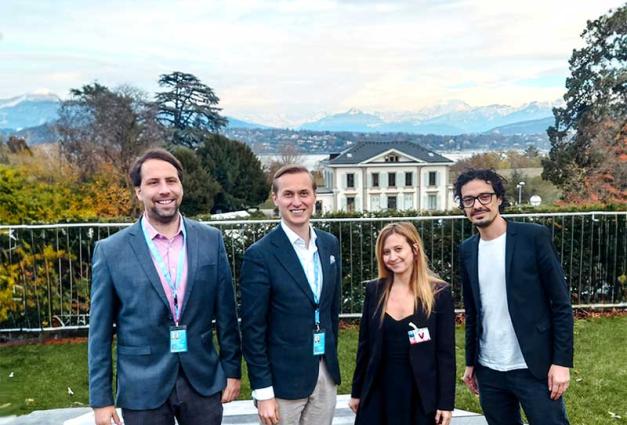How has social/personality psychology helped progress other fields of study? In this column, researchers from a variety of disciplines outside of social/personality psychology will explain how social/personality psychology has helped them answer their research questions in their respective fields.
What kind of research do you conduct?
By training, I'm an evolutionary biologist and anthropologist, but I now have a joint appointment between the Department of Gender Studies and The Kinsey Institute for Research in Sex, Gender, and Reproduction, both at Indiana University. My research agenda centers primarily on romantic and sexual relationships across the life course, with a focus on biopsychosocial and biocultural models of human sexual behavior, intimacy, and love.
How have you collaborated with social/personality psychologists?
My closest collaborator, Dr. Amanda Gesselman, who specializes in relationships, is a social psychologist -- By combining our skills, we're able to address theoretically-informed questions on a variety of topics that interest us, ranging from sexual behavior and experience, to affective touch, to online dating, to sexual violence on college campuses.
I co-edited “Evolution's Empress: Darwinian Perspectives on the Nature of Women” (Oxford University Press, 2013) with my wonderful social psychologist colleagues Dr. Maryanne Fisher (Saint Mary's University) and Dr. Rosemarie Sokol Chang (now at American Psychological Association), which examines areas of integration of evolutionary behavioral sciences and feminisms.
I also collaborate with Dr. David Frederick (Chapman University), with whom I've been exploring patterns of mate preferences, intimacy, and health, in large national samples; with Vivian Ta (University of Texas/Arlington), who I met while we were both consulting for Match.com, on the impact of relationship status and context on various social perceptions, communication, and well-being; and I continue to write about sexual hookups with a collaborative team that includes a queer theorist and personality psychologist (Dr. Sean Massey, Binghamton University), a developmental psychologist (Dr. Ann Merriwether, Binghamton University), and a public health scientist and nurse practitioner (Dr. Susan Seibold-Simpson, SUNY Polytechnic Institute).
How has social/personality psychology helped you answer research questions?
Social/personality psychology has a lot to offer to the study of romantic and sexual relationships because it is so multifaceted. For instance, as sex research begins to focus more on relationship contexts of sexual activity—whether with a loving spouse, a casual sex hookup, multiple partners, or being solo—we have to think critically about the complexities of people's romantic and sexual lives.
I also think social/personality psychology provides many tools for exploring the intersections of biology and culture. Despite social psychological mechanisms often being at the center of these intersections, more theoretically and empirically rich work is needed to account for these different levels of analysis. That doesn't mean I always agree with the techniques of my social/personality psychology colleagues, and certainly they don't always agree with my thoughts, but that push-and-pull is what makes for some exciting and transformative research.
How can social/personality psychologists become more involved in your area of study?
Academics are notorious for policing the perceived boundaries of their disciplines and research interests, but it's important to resist that tendency without abandoning one's disciplinary training (I know, easier said than done!). It’s worthwhile to stay abreast of what others, in other fields, have to say about similar topics.
I’m also an advocate of getting people in the same physical space. So, when possible, consider activities that help you meet other scholars and scientists, like conferences that you might not typically attend, or talks in other departments, or inviting guest speakers from other relevant fields. While I occasionally attend psychology conferences like APS and SPSP, I've also encountered many colleagues and established exciting collaborations at interdisciplinary conferences I attend more regularly, such as the Human Behavior and Evolution Society (HBES), and Society for the Scientific Study of Sexuality (SSSS). And if you attend one of those conferences, please find me and say hello!




